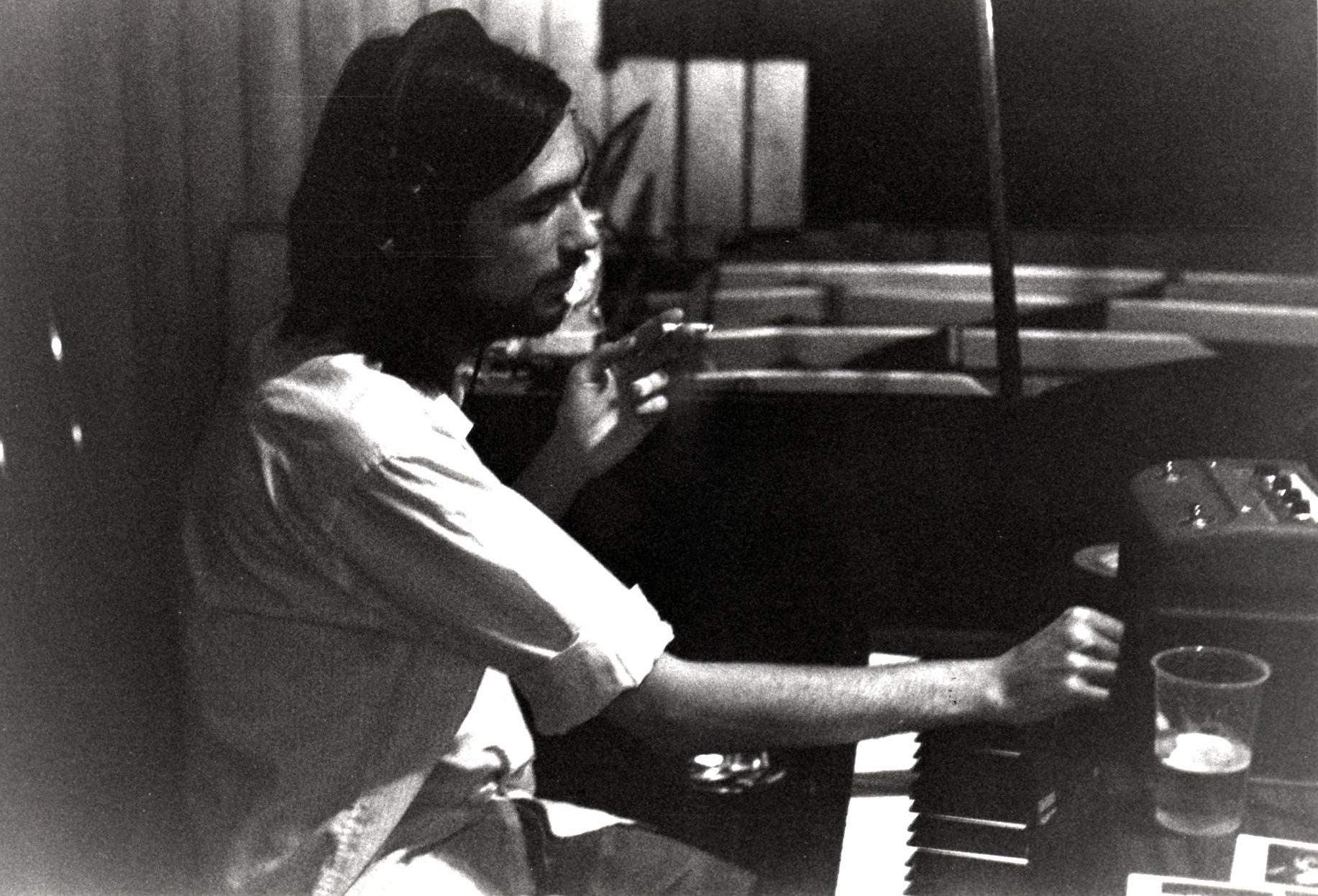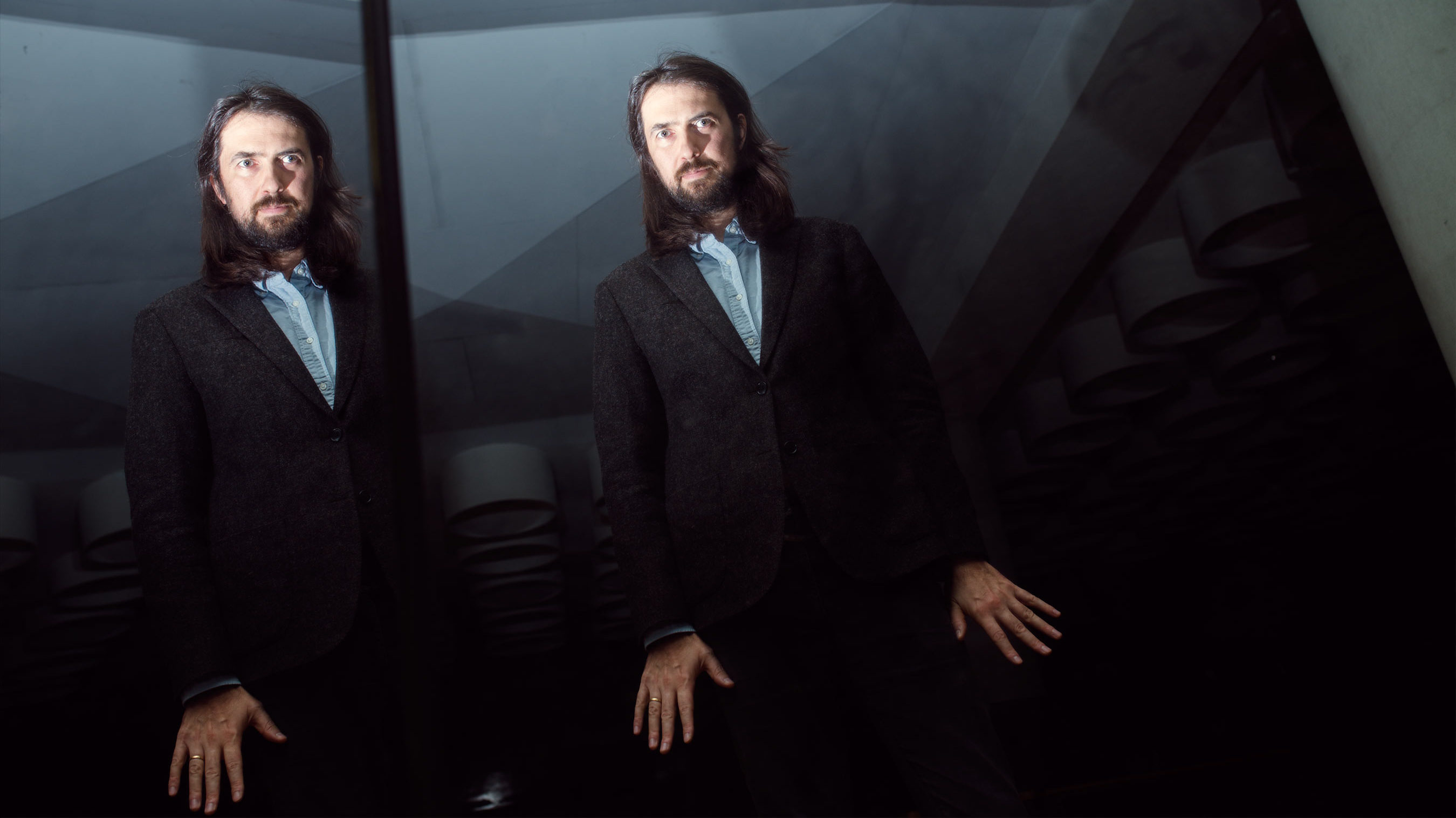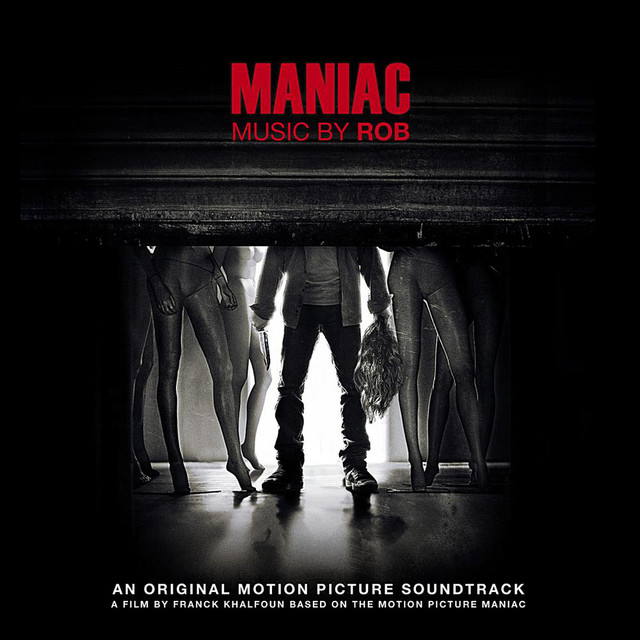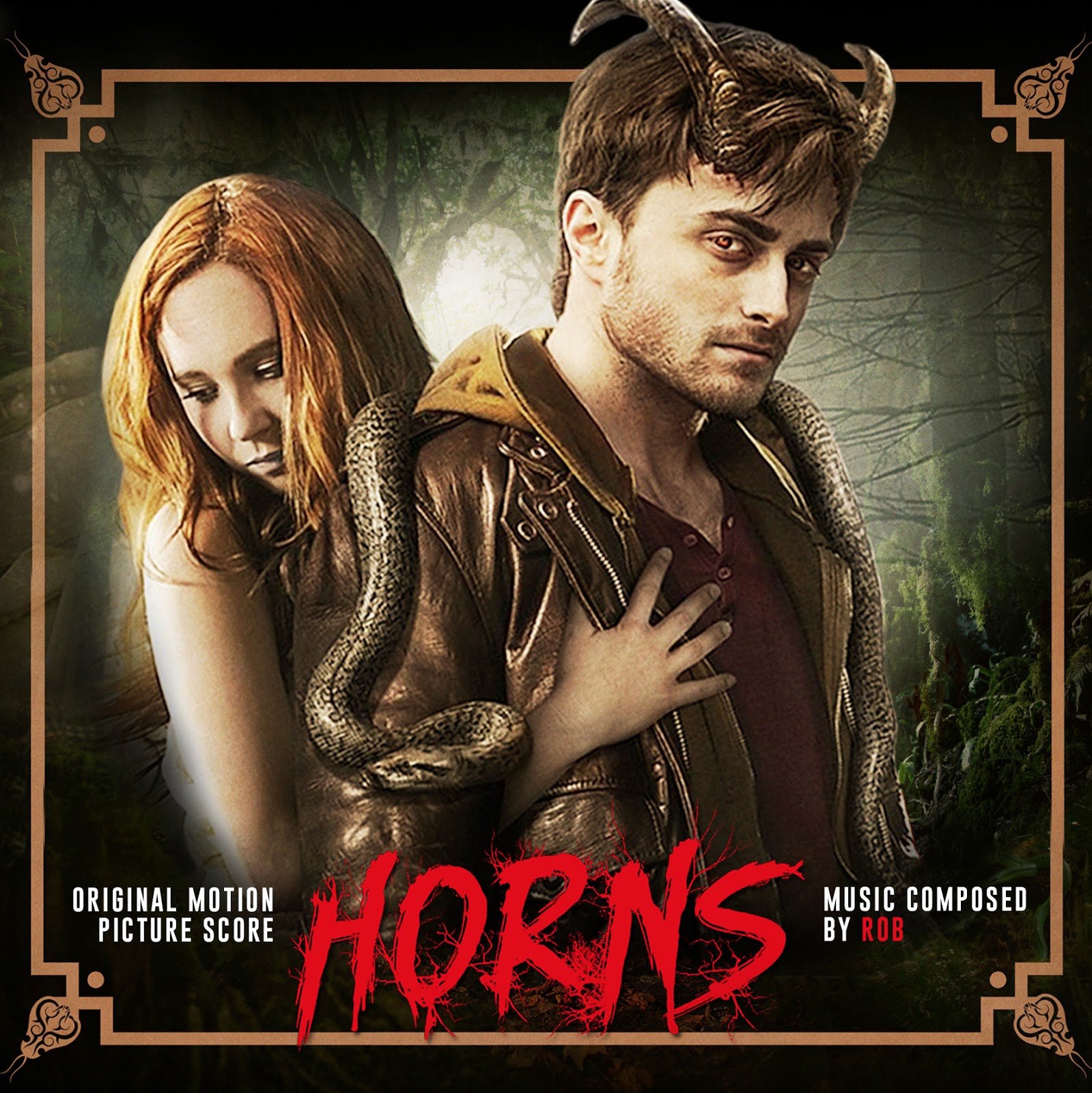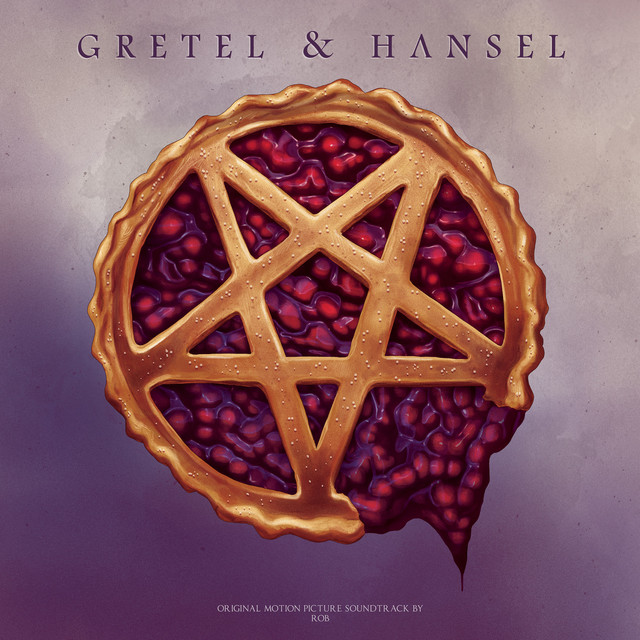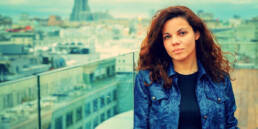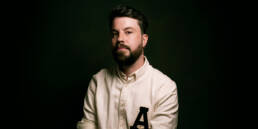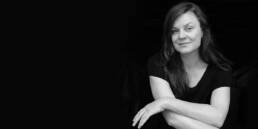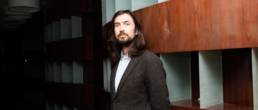
Earlier this month, the highly-anticipated fifth and final season of ‘Le Bureau des Légendes’ (‘The Bureau’), was released. The creators of France’s flagship TV series decided to go out with a bang, saying that they ‘wanted to try out new things, exercise more narrative freedom and rewrite the rules of the show to some extent.’
We spoke with the show’s composer, Paris-based ROB (aka Robin Coudert), who echoed the creative team’s vision for this season and oversized the dramatic framework by introducing orchestral parts. We touched upon his influences, tendencies, challenges and perspectives.
When did you first realize you wanted to write music for a living?
I’m not sure I’ve realized that yet. [laughs] No, for sure now I know that. I studied trumpet when I was eight years old so it’s been a while now that I’m into music but I never thought of it as a way of getting money. I thought that I would be a painter. I did Fine Arts studies when I was eighteen and that’s when I realized that painting was a bit boring and a bit complicated to me, whereas I had so much fun playing music that I slightly went into music. But I think I never decided it. It’s more like stuff just happened that way. And when my friends from the band Phoenix told me that they had found a new label called Source that was very cool, they said, ‘Hey, maybe you should let them hear your music, they might like it.’ So I did and they loved it and I signed my first contract.
Then I had sort of a solo career that went from an artistic point of view very well because I was very free. At the time Air was huge on the radio so there was like a big thing about instrumental pop music so it was a good thing for me. But at the same time, it was the end of that era and I had troubles finding my place in that world and especially on the radio, so it was hard for me to get another contract and do another recording. And then cinema just knocked on my door and said, ‘Hey, what you’re doing is great!’ Once again, I didn’t decide it. It just happened that way. I never thought that my music was good for cinema. Cinema just came to me.
My music was already very cinematic in a way. Which means very trippy, instrumental, with very long spaces and very eclectic too. I was into choirs, symphonic orchestra, electronic, techno, drone music. It was hard to focus everything in one kind of music. But cinema can do that because there’s a need in cinema to have something very wide, very original and to express many different kinds of emotions. So I think once again I didn’t realize it myself but my music was made for that. It was the perfect match between my music and cinema.
Growing up, when did you first acknowledge the importance of music as a supporting element to picture?
As far as I remember, my memories of cinema are very related to music. The relationship you have with music is so intimate. Music is so abstract. It’s not a picture, it’s not something you can draw. It’s a feeling, it’s something in the air, it’s a wave. I think it’s very solid in your brain once you’ve been hit by music that is powerful.
I think when I was maybe five-six years old, the first Japanese cartoon on TV, for instance, had a huge impact on me. At that time in France, we had a lot of cartoons with some beautiful stories for kids made by Japanese studios and the music was GREAT, with a lot of synthesizers. A composer called Shuki Levy composed many of those soundtracks and now, 35 years after this, I still feel it in my heart and I’m still in love with that music and I still feel the influence that this had on me and on my music. I’m trying today to buy the synthesizers used in those soundtracks back in the days. Of course, at the time I had no clue about what a synthesizer was, but now that I know I’m really looking after those same feelings. What I experienced as a kid, that’s what I want to feel and to live right now.
I could also quote some early Polanski movies, like ‘The Fearless Vampire Killers’, which is a very humoristic horror movie in a way; it’s vampires, but ridiculous vampires. But the music is beautiful, composed by [Krzysztof] Komeda, who was Polanski’s greatest composer. He died very young, so he disappeared after that. And this music is still in my heart exactly like Shuki Levy’s music. I have the feeling that every time I need to compose something, it’s like I’m quoting again and again and again music from ‘The Fearless Vampire Killers’. Those very specific sounds that he used, very European, jazz from the ‘60s, weird choirs, bass clarinets, vibraphones, that kind of stuff. That’s something that’s still in my mind. It was very instinctive. I couldn’t say at the time that ‘Music is very important and that’s why I love these films so much’, but now I understand that.
Even though all of your music is cinematic, it is, of course, one thing to write music for your own albums, where the music takes centre stage, and it’s a different thing when the music has to take a step back in order to support the film. Have you found it challenging to have to take that step back?
It is very challenging actually. And sometimes it’s even hard to have my music in a feature because my music is a bit over it. So I think I need to find some projects that will have the shoulders to have my music in them. I’m not saying this in a pretentious way. It’s just that it’s true that my music has a strong impact on the picture. And the fact that I use a lot of melodies, for instance, creates sort of an extra character in the movie and not all the movies can get that. And also, not all the directors are ready to accept that, because it’s really something like an alien, like something outside of the world of the movie that comes there and makes something very strong. The directors should be prepared and the movies need to accept that.
It happens to me, not a lot, but once in a while, that even though the director likes what I do and I like the movie, it doesn’t fit, because there’s no space for my music. Also, the fact that I compose a lot based on the script, based on the scenario, it makes me compose music that is very solid, very strong. And then once I work on the picture, I need to take everything off and get rid of all the strong material to get just a thin line and just the idea of what I had in the first place. And that’s the work that I’ve learned to do, movie after movie.
Most of the time, directors have trouble explaining what they want in terms of music. How do you manage to decipher what they want?
It’s true that most of the directors are very scared actually, or they are very shy about this. They’re a bit like, ‘I don’t know the words. I don’t know if it’s a trumpet or a bass.’ And they feel very ashamed, in a way, that they have this lack of words. And it’s funny because the director’s job is to decide everything. You have to know what you want and you have to be the boss, but then on the musical stage you’re a bit like, ‘Yeah, sorry, but I don’t know what to do.’
“A good soundtrack is mainly a matter of trust between the director and the composer.”
So my first job is to create a dialogue with the director and to find the right words to make everyone comfortable. The music we’re going to create is like creating a new language in a way. We create some new ‘words’ that will be used only on that project. It sort of creates a link between the director, the movie and myself. This is the main job actually as a composer, to find those things. It can be some instrument, some notes, some melodies, some textures, that kind of stuff. And all mixed together, step by step, you build the idea of the music.
Have you had any issues with directors while collaborating on a project? Sometimes egos can get in the way and people go head to head.
Yes, of course, because it’s a relationship between two artists and artists can be awful persons. Hopefully, I’m OK. [laughs] Sometimes the egos get a bit high and it’s complicated. I think the worst-case situation is when the director is also a musician. Because he or she feels like they know what they want and when they come with a pre-built idea for me it’s really hard to bring some new stuff and say, ‘Let’s try something different.’ I think the best way to do this is to really trust the composer. What I say very often is that a good soundtrack is mainly a matter of trust between the director and the composer. If I’m not allowed to create then there’s no chance I will do something good. The director has to accept that another artist will bring some new ideas to make the film better. But sometimes, because of the ego or because of the knowledge or something else, it’s really hard for the director to accept that.
You’ve worked on quite a number of horror films. Would you say that’s the genre you feel most comfortable writing for?
I think I’m still wondering why I’ve done so many horror movies. I don’t know why. I think what they want and need when they do horror movies is something that takes you out of this world. Something that will take you to a parallel universe. What you feel in a genre movie is something very unique; you want to be outside of the daily situation. So I think my music suits that idea very well.
Also, you want to feel some very strong impact. And as I said, my music is strong under the picture. So it works with horror movies. This is the kind of movie where I can let it go and express myself without being afraid that it’s a bit maybe too big, too loud, too strong. There I can be like, ‘OK, you want it? I’m gonna give it to you.’ For me, it’s very comfortable in a way. I’m sure for some kind of composer it must be very frightening because they’d be like, ‘I am able to do something that hard, that harsh, that disgusting?’ It’s the opposite for me. I have like a lot to express [laughs] and a lot to give so it’s like, ‘You want more? OK, let’s do more.’
I also think this kind of movie is like a territory of freedom. It’s a domain where you want to do something more, you want to explore, you want to have fun. It’s not like working in comedy, where the codes are very strict and it’s very complicated to create some laughing. Of course, to create some fear you also need to be structured, very precise, but you want a different taste. And so it’s very exciting for a composer to work on this.
I find that most of the time people write very dissonant, very tense music, but then there are also these subtle or creative ways to write for horror.
Yes. Something I like in horror movies is to create a very strong contrast between what you see and what you feel. For instance, in ‘Maniac’, the movie I did with Alex Aja and Franck Khalfoun, I had this idea of composing music that was very sentimental, very emotional, with a lot of nostalgia. Listening to that while you’re watching an actual woman being scalped, and a lot of blood and disgusting pictures, it creates sort of a mind fuck. You’re like, ‘Argh, this is disgusting! But at the same time, I want to cry, but I don’t know why, because it’s so emotional!’ I think that’s a very interesting situation as an audience, to be really disturbed by this twist.
So you’re going for a different type of dissonance: cognitive dissonance.
Yeah, exactly.
You’ve also done some fantastic orchestral work, such as the scores for ‘Horns’ or ‘Planetarium’. I love that you use a lot of woodwinds, which composers tend to neglect these days. So my question is, did you find it challenging to suddenly start writing for orchestra?
I have to admit that for me, as a self-taught musician, it was kind of a fantasy to be able to use a forty-people orchestra. I was like, ‘Am I allowed to do that? Do I have the right? I don’t know how to write a score. What am I doing here?’ When I was in Abbey Road with the LSO it was a bit intimidating and I could feel that I had to prove myself. It was really like, ‘Guys, I don’t know anything about what you’re doing but you’re going to do what I say anyway.’ That was a very interesting situation for me as a composer but I have to say that for me, an orchestra is like any instrument. It’s like a synthesizer. It’s just that it has its own rules, its own writing, and its own sound, but it’s the same. And if the movie requires that, then we’re going to do that for the movie. It’s as simple as this.
And I think it’s a very interesting approach, the fact that I’m self-taught. Because as you mentioned, for instance, I’m in love with woodwinds and it’s true that many composers are a bit picky with this because it’s supposed to be hard to use. It’s supposed to be out of tune, and you can’t do everything you want. But because I’m not aware of this, I’m like, ‘Oh, I love woodwinds! Let’s put A LOT of woodwinds!’ [laughs] And it’s a bit like, ‘Are you sure? It’s going to be a little hard.’ But I think it creates my own way of using an orchestra and hopefully, create something very original and a new approach that is not the same with all the guys out of conservatory schools in Paris where they know exactly how to write a score, how to compose, they know the rules. But I’m very happy I’m not into this. I’m very happy that I break those rules. So I’m happy that I’m a self-taught composer and I can just make shitty scores but that sound very original. [laughs]
None of your scores are shitty!
Thank you, thank you! [laughs]
How do you find working on American productions compared to French productions? Is the process any different?
Artistically, it’s the same. My approach is the same, which is to try to bring the best music possible for a project. Then, in the process, there are many tiny differences like the fact that in the US, the roles of the producer and the director are very different. In France and probably in Europe it’s the same. You work with the director. You don’t really care what the producer says. It’s the director’s job to deal with the producer. Whereas in the US, you should be friends with the producer from the first day. Because in the end, he’s going to pay and approve your work.
It happened to me when I worked with Alex Aja, for instance. With a French director working in the US, we were really in between. We wanted to keep the relationship that we had, between the French composer and the French director, but we were in an American production. So it became a big issue in the process that he was trying to keep the producer away from our relationship, but he shouldn’t have. He should have included him in the first place, because in the end, the producer said, ‘I don’t like this cue, and this one, and the orchestrations. Either you change the composer, or you do what I say.’ So we had some troubles. It was on ‘Horns’, but it was of course very interesting for me because it was my first big experience in the American industry. And I learned a lot out of this. Now that I know that, whenever I work on a big international production, on the first day, I include the executive producer, the producer, the editor, everyone on the mailing list and I make sure everyone is involved.
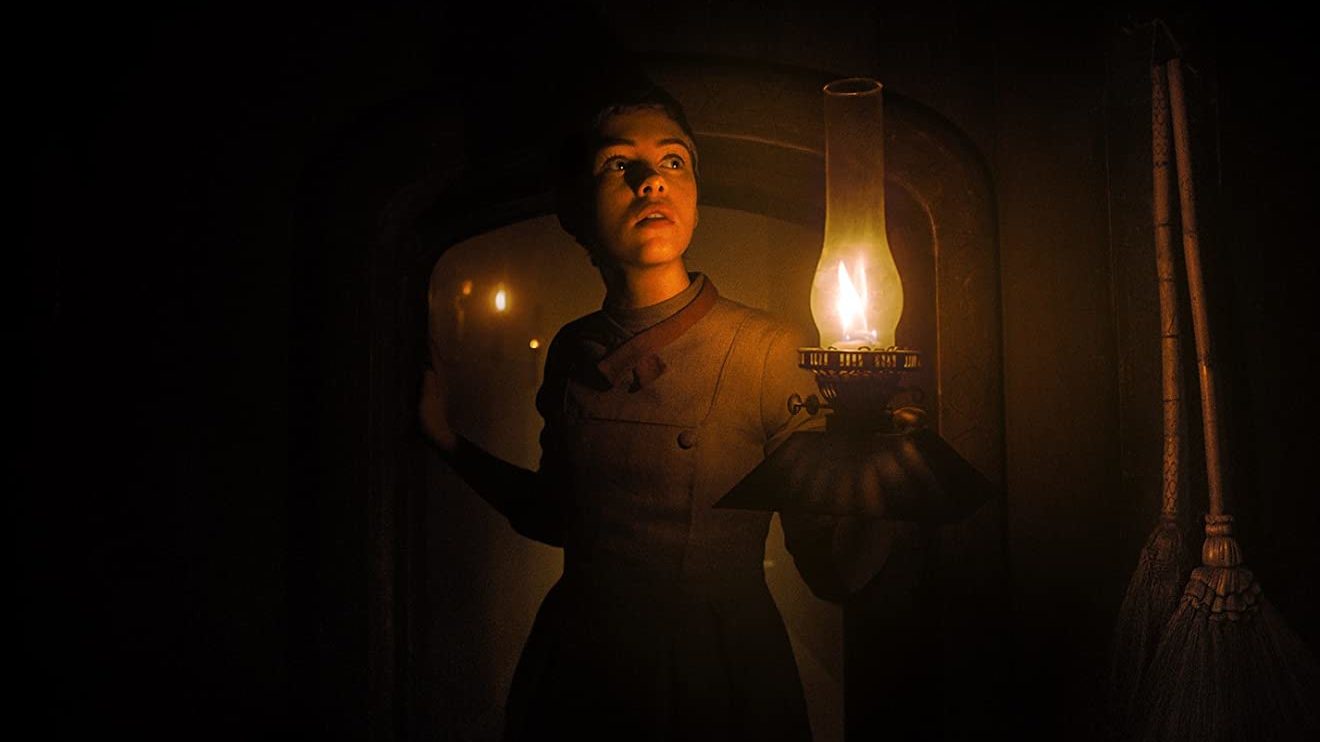 GRETEL & HANSEL ©PATRICK REDMOND/ORION PICTURES
GRETEL & HANSEL ©PATRICK REDMOND/ORION PICTURES
For instance, on ‘Gretel & Hansel’, that I did earlier this year, I was working with Oz Perkins, the director, who’s obviously a great artist with a really strong character and a really strong artistic vision, and I was asking, ‘Please direct me. Tell me what you feel.’ He said, ‘I’m going to tell you just one thing because I know that no one will tell you this thing in the production. Just keep a very humoristic point of view.’ Which was very unexpected in a horror movie. [laughs] I was of course surprised, but that was the only thing he said on the one hour and twenty minutes call. Everything else was just my relationship with the producer and everyone else. I was prepared to have this relationship, but maybe a few years ago I would have been very disturbed by this. [laughs] And to be precise about what he said, I understood in the process that what he wanted to tell me was to keep a distance, not to create first-degree music like, ‘She’s sad, play sad music.’ He wanted me to write something that creates like a third dimension in how you get into the movie.
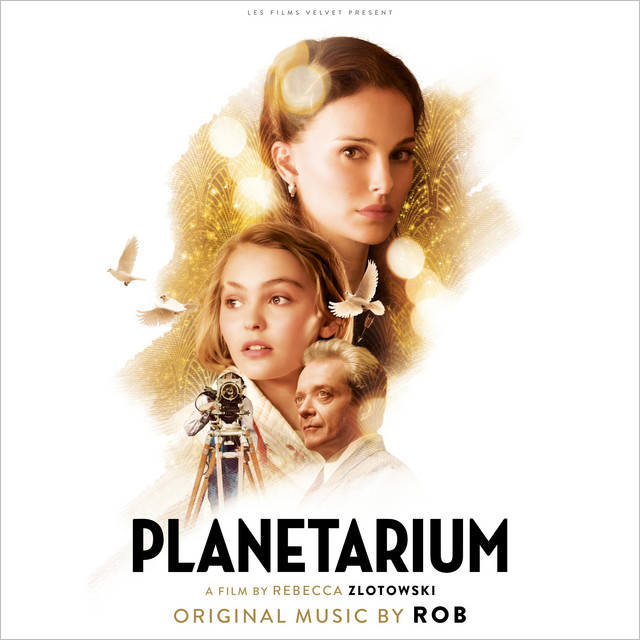
Another one of your frequent collaborators is Rebecca Zlotowski. You guys started your careers roughly at the same time, so this prompted a long-term collaboration. Can you tell me a bit about your synergy, how you work together?
She’s almost the first one who thought of me as a cinema composer. I met her when she was studying in the famous cinema school in Paris, called La Fémis, where my wife, who at the time was my girlfriend, was working in this school as well. It was in a very friendly environment; we were friends first. She and I, as you said, had started our careers together, so ‘Belle Épine’, her first feature, was also my first long feature, so we experienced cinema at the same time. We made the mistakes together and we had those beautiful epiphanies, ‘happy mistakes’, together as well.
It’s like when you grow up with someone, with your brother or sister, there is something so strong in the relationship and then it’s very useful because you don’t need to explain everything. It’s there and you look at the other person and you agree. We know what we have to do and we go straight forward.
What’s also very useful is the fact that we are very different at the same time. She’s very intellectual, she loves to think about things and write everything. She’s a writer. Everything is very structured. Whereas I’m more like a long-haired artist. I’m a bit romantic, I love to work on emotions and instinct. So those two aspects of our character are very complementary.
It sounds like the best kind of relationship in this scenario.
Yeah, but it’s also sometimes very difficult because I’m very instinctive and emotional so I’m like, ‘I know what to do, this is the music for that scene.’ And she’s like, ‘No. This isn’t the way I wrote it.’ So we have this little fight. Then after a few weeks, she says, ‘You were right in the first place.’ She told me that I have a few weeks in advance of our thinking because of instinct that is much faster than the brain. [laughs]
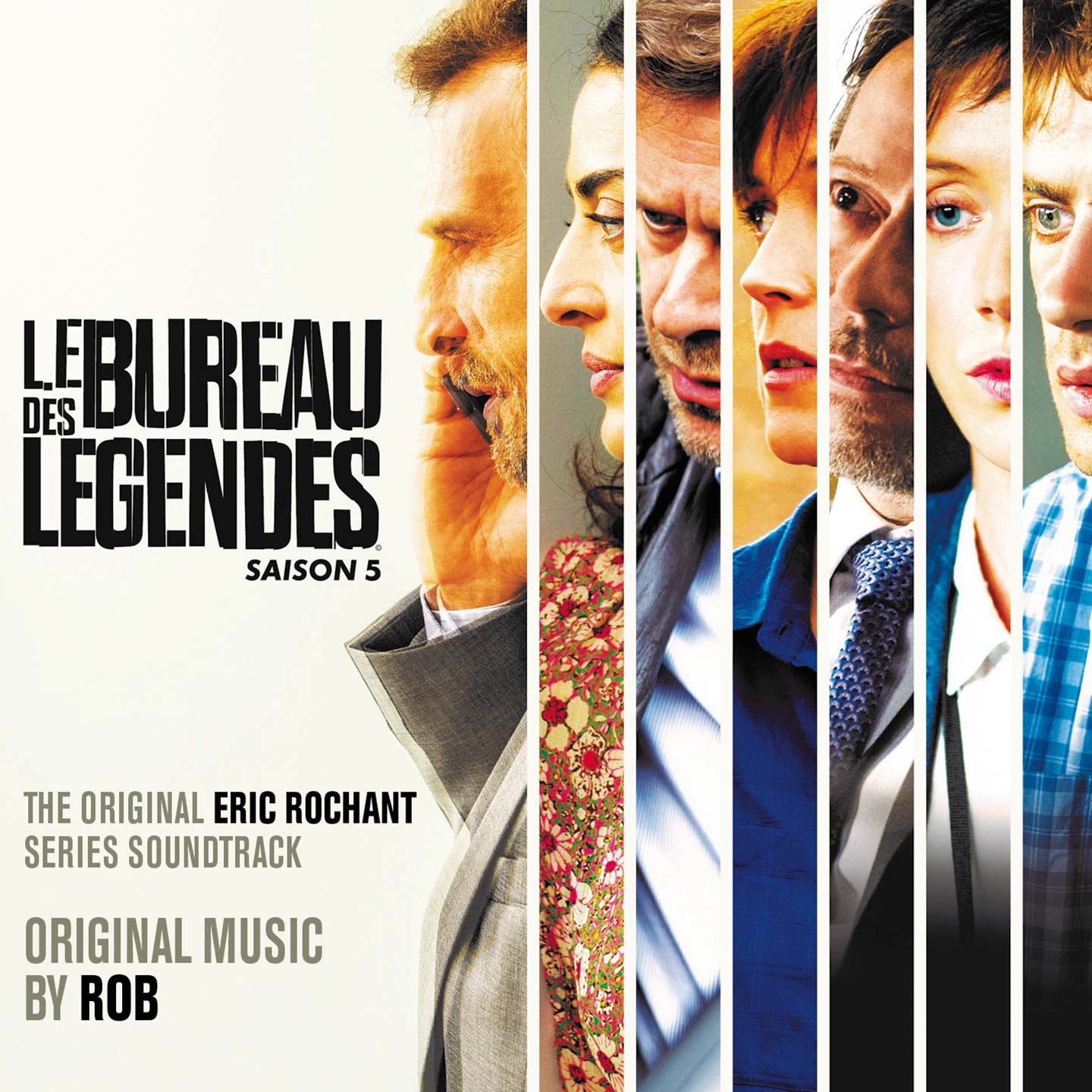
Last week, the fifth and final season of ‘Lés Bureau des Legendes’ came out. How has the score evolved throughout the five seasons?
We tried to compose from scratch from one season to another. There was always a new theme in the story so I composed two or more hours of new material even before the shooting, just based on the script. While we were doing this, we also reused themes from the previous seasons. So year after year we created an absolutely huge soundbank. It’s really colossal.
And because it was said that it was the last season, especially for the writer Éric Rochant, it has something very testimonial. This is the end of the series, this is the end of the characters, what we are experiencing right now is the end of the world. So I wanted to transform the characters that are very realistic in this series, into mythological characters. Like they could live in any age, in any situation. To me, to add just a touch of classical music in this, to take the previous themes but to have them rearranged like it was more operatic, in a way, creates this sort of out of time distantiation. In the previous seasons, we were mainly electronic and we would stick to the 21st century but I wanted for this last season something wider. Something that could be from any century.
Why did you take this approach?
I can’t spoil it, but because there’s something about faith, about destiny, about something from tragedy, almost from Greek tragedy. And that’s what I mean when I say mythological characters. It’s not anymore about terrorism and bombs and spies using tools. It’s more like whatever you do when you’re in love or when you feel like you’re fighting for your country, you become a character that could be from any age.
Stella Lungu
Stella is the Editor-in-Chief of The Cinematic Journal. She is also the Managing Director of Wolkh, a PR, Marketing and Branding agency specializing in Film, TV, Interactive Entertainment and Performing Arts.
An Interview with Anna Drubich
Anna Drubich is a Russian-born composer of both concert and film music, and has studied across…
A Conversation with Adam Janota Bzowski
Adam Janota Bzowski is a London-based composer and sound designer who has been working in film and…
Interview: Rebekka Karijord on the Process of Scoring Songs of Earth
Songs of Earth is Margreth Olin’s critically acclaimed nature documentary which is both an intimate…
Don't miss out
Cinematic stories delivered straight to your inbox.
Ridiculously Effective PR & Marketing
Wolkh is a full-service creative agency specialising in PR, Marketing and Branding for Film, TV, Interactive Entertainment and Performing Arts.
